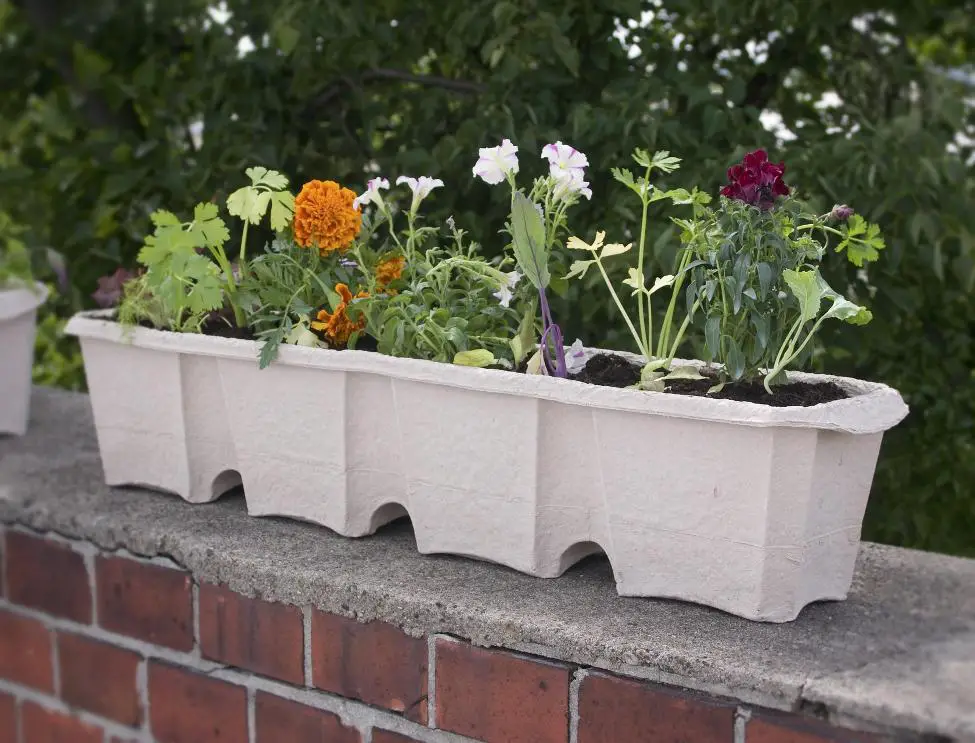You don’t need a big garden to grow your food. In this article, we will talk about the best vegetables to grow in small spaces and some tips to make the most out of them.
How to grow vegetables in small pots or containers
Growing your food is not complicated. Starting a garden can be simple if you grow the right plants for your location and climate.
Container gardening is often easier than growing in a conventional garden. Preparation is much easier than for the larger patch of a full-sized garden All you need is a suitable container for your plant, and soil to put in it.
Containers of all shapes and sizes are often highly attractive and a convenient way to do it but you could also start your own innovative garden by using elements that are around your house such as baskets, old boots, a repurposed pallet and, old rain gutters.
Tips for gardening in small spaces
- Plant pots or containers should be at least 20-22 cm in diameter and 20-25 cm deep so the plant has available space to grow freely
- Make sure all pots and containers have at least 1 drainage hole at the bottom
- Cover the drainage hole before planting, using a material that allows water to drain while holding the potting soil in
- Use a high percentage of compost to offer a wide spectrum of nutrients
- When adding the soil, do not fill the pot to the top. Allow 3-5 cm of space between the top of the soil and the rim of the pot
- Soaking seeds in water before sowing gives the germinating seeds a head start
- After planting, water the seeds with a gentle mist or shower
- To achieve a constant supply of leaves through the season, sow a small amount every 2-3 weeks
- Make sure the soil never dries out
Vegetables that take up little space
There are many vegetables that yield a great harvest and do not take up much space. Here is a list of some herbs and vegetables that can be quickly grown in small containers:
- Herbs are the easiest edible plants to grow in small spaces, even indoors. Basil, rosemary, mint, coriander, and parsley
- Spinach. Delicious, nutritious spinach can be picked as small, tender, cut-and-come-again leaves for salads or be allowed to grow bushier for larger leaves for cooking.
- Lettuce, start seeds in seeding trays and transplant them when they are about 5-7 cm tall
- Cress is any of several plants of the mustard family known for their piquant leaves. It is also a good microgreen.
- Cucumber, there are many varieties of cucumber to choose from, and some of them are especially suited to growing in containers.
- Radish
- Beets are perfect for beginner gardeners as they are tolerant to many different growing environments
- Kale is surprisingly easy to grow and does well during the colder months
- Capsicum, growing them in small spaces allows for proper control of their growing environment with is essential for better crops
- Swiss Chard
- Beans are rewarding to grow in a container as they’re an easy crop to grow and have few diseases and pests
- Carrot, choose a pot that is not terracotta and is at least 25 cm deep.
Equipment for container gardening
Small garden hand tools are best for container gardening:
- Drainage rocks and stones
- Old kitchen utensils like knives, forks and spoons are small and useful for microgreens and small pots
- Tolls like a small trowel and fork
- Cutters, secateurs, scissors
- Watering can
- String and other tying material
- Trays for standing pots on
If you only have a small space available, whether it is because you live in an apartment or you have a tiny garden, by choosing the right plants and containers you should be able to grow your food and enjoy plenty of produce at home.
